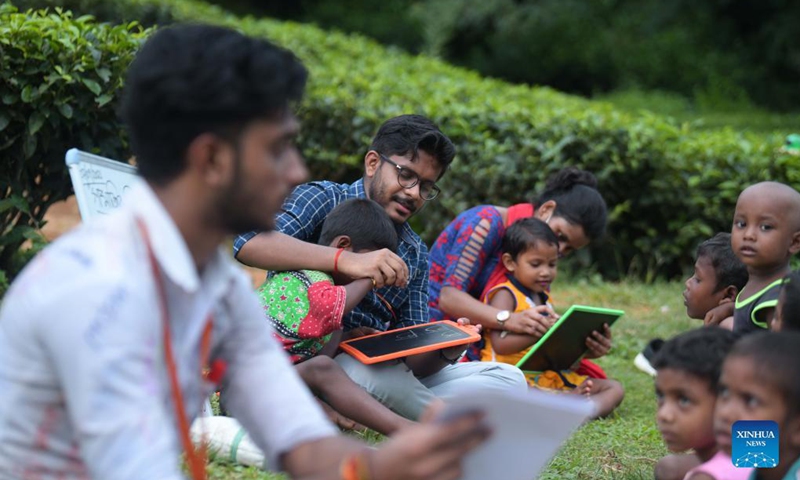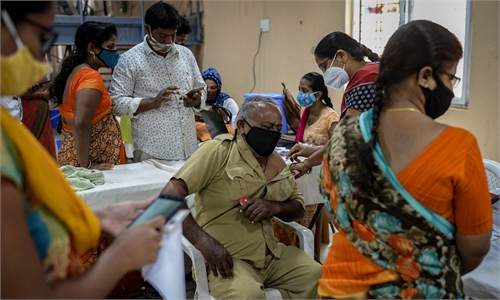COVID-19 batters India’s education
Ongoing crisis badly impacts children from poor and rural families

Volunteers teach children of tea workers for free on the eve of International Literacy Day, at a tea garden, on the outskirts of Agartala, the capital city of India's northeastern state of Tripura, Sept. 7, 2021. International Literacy Day is an international observance celebrated each year on September 8. (Str/Xinhua)
The ongoing COVID-19 pandemic has hit almost all sectors in India, especially the country's education sector. Ever since the disease started to spread in 2020, schools and educational institutions across India were the first to shut down in a bid to protect children.
However, as the pandemic continues, the impact on the country's educational system is worrying and the consequences have been alarming.
The prolonged closure of schools and educational institutions has badly impacted students, especially those from rural and poor families.
Several months into the first wave, the Indian government came up with the idea of online classes. It sounded like a good idea initially, but the fact is many students cannot access the internet due to lack of equipment and facilities.
Gadgets like mobile phones and laptops are not a given in the country. For students who cannot afford them, waiting for schools to reopen is the only option. Children with educated parents can enjoy studying at home with family support throughout the pandemic, but those from illiterate families are being left behind. In many parts of India, midday meals used to be a special attraction for students attending schools. Officials said India's midday meal scheme over the years had significantly increased school enrollment and helped many children get adequate nutrition.
School closures in the wake of the COVID-19 lockdown had badly hit the economy and livelihoods of many people, thus leaving many students without proper nutrition.
"I used to sell tea on my handcart to make ends meet. After the lockdown, my livelihood was badly impacted. During the initial months, I supported my family with my savings, but as the situation continued, I took out loans and had to rely on alms from friends and some charity groups," said Pawan Kumar, a migrant worker from India's northern state of Bihar.
"My children were going to government-run schools and after their closure, they are now staying home. Where can I afford smartphones for my three children and then pay to recharge them on a monthly basis?" Kumar said. The ongoing COVID-19 pandemic has not only affected public schools, but also hit low-budget community institutions.
Nasir Ahmad, a postgraduate, was running a low-budget middle school in Indian-controlled Kashmir's Kulgam district. Families with medium and low incomes had their children enrolled in Ahmad's school. Following the pandemic, the school was closed on government instructions, and as the virus continued to rage, students failed to pay their monthly school fees. With economic pressure to pay the monthly salaries of his 15-member faculty, he had to move classes online for the children.

